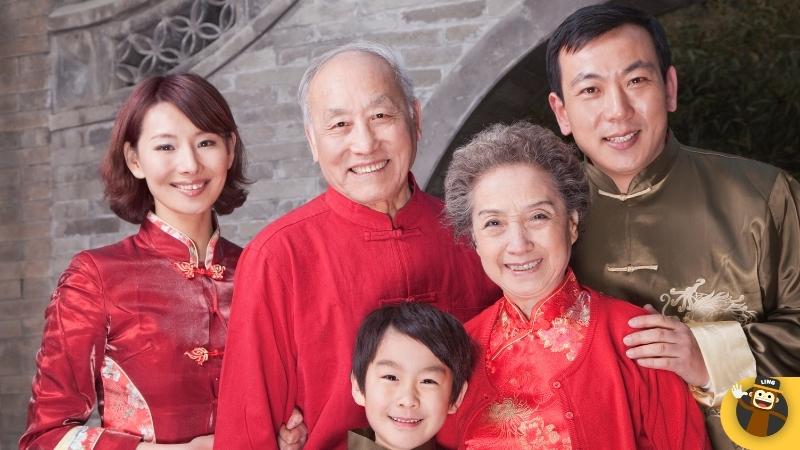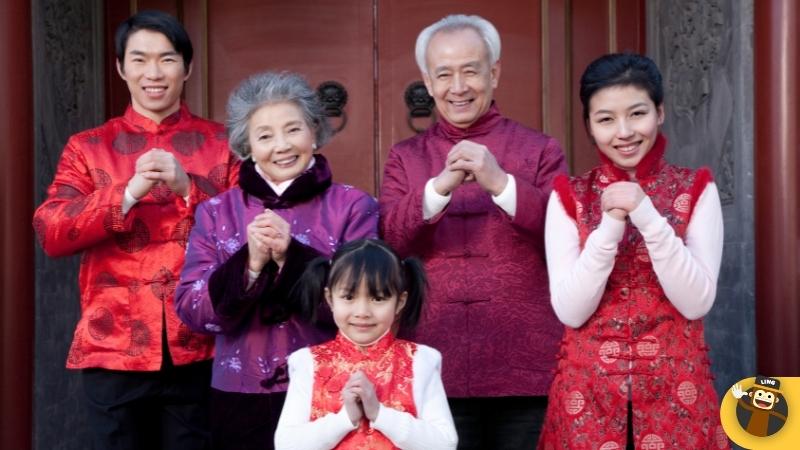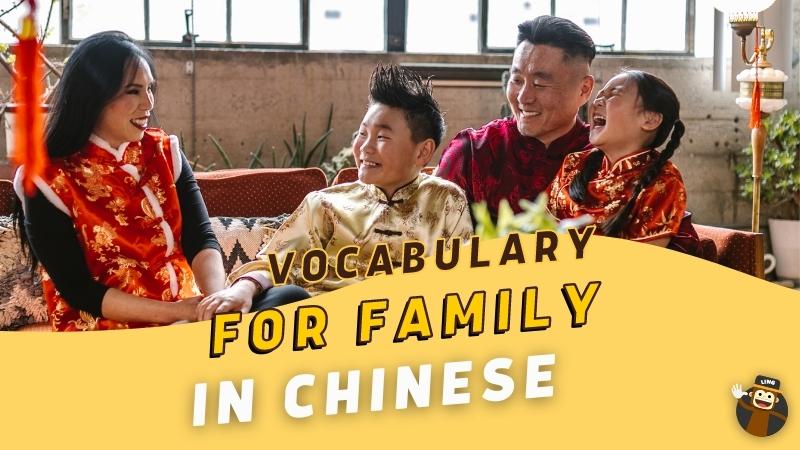For Chinese people, family is everything. Although many traditional customs have been abandoned by modern Chinese families, the value placed on family life is as high as ever. Therefore, we want to share a vocabulary for family in Chinese with you so that you can apply it in the conversation!
Having a solid nuclear family is highly valued in Chinese culture. Therefore, each member’s responsibilities have always been well-defined within the Chinese family.
Elders are respected in Chinese society because of their knowledge and insight. If a younger person challenges an older person’s opinion, they are seen as disrespectful. Parents or other adults in the household are seen as providers.
They were expected to start a family as soon as possible, marry young, and work hard to support themselves and their family. Children were never allowed to make their own choices; instead, those choices were decided for them.
As you may notice, a high level of closeness between family members in Chinese culture can probably somehow affect each member’s identity. So first, let’s learn the meaning of the Chinese words 家庭 (Jiātíng), which means family or home, and then we’ll go on to the vocabulary related to family members in Chinese.
家庭 (Jiātíng) – Family Or Home

Having a term with two meanings that are somehow connected stands to reason, and it reveals a great deal about traditional Chinese thought and practice. Many people’s personalities and safety nets originate from their families. Confucianism provides a framework for understanding the Chinese family.
According to Confucianism, the family is the fundamental unit of society since it contains all the most solid connections for individuals. And it leads to the common practice of a big family, this means many people living together in the same house.
Three Generation Households
In a typical Chinese house, there is usually living as a big family. So you can expect Chinese family members from grandparents, parents, and children to live under the same roof. The father or grandfather is the head of the household and traditionally has the responsibility of financially caring for his family.
As a result of this role, he will have complete control over the family and the final word in all decisions. However, after their father passed away, the children separated and built their separate households.
Vocabulary For Family In Chinese

Learning some vocabulary for family members in Chinese is best to help you picture the average Chinese family size. By familiarizing yourself with the several terms Chinese people refer to their family members, you may begin to get an image. Alright, so let’s get going!
Vocabulary For An In-Law In Chinese
Traditionally, Chinese wives move into their husband’s homes and become part of their large family, which often includes her in-laws and their husband’s parents. Let’s study up on in-law vocabulary.
In Summary
After learning the above terminology, you can have the strange impression that Chinese individuals compose Chinese-specific terms for their paternal and maternal lines. Create your own family tree and add words that describe your family members as you go. This will enable you to remember and use Chinese family-related words more quickly and effectively.
Learn Chinese With Ling Now!
Do you want the most excellent app to help you study Chinese whenever and wherever you want? Then, let us provide you with the best option possible!

Learning Chinese with Ling, the ideal language learning app is easier than ever before. We give you access to an extensive library of valuable words you can study on the go using your mobile device. In addition, there is a wide range of practical terms and native pronunciations to learn. More than that, our engaging resources like mini-games, puzzles, and a fantastic chatbot can support you in your efforts to learn new words quickly.
Are you ready to start now? So download the Ling App from Google Play Store and Apple App Store now, and prepare to be fluent in Chinese soon!























